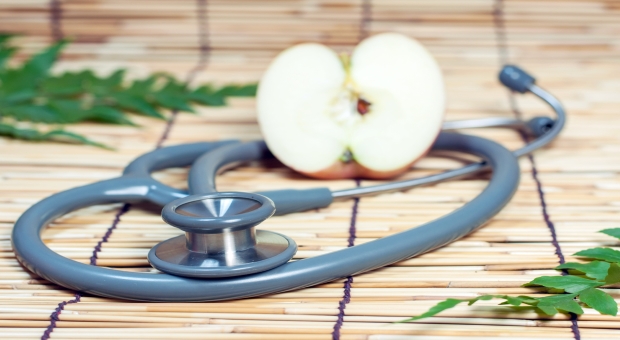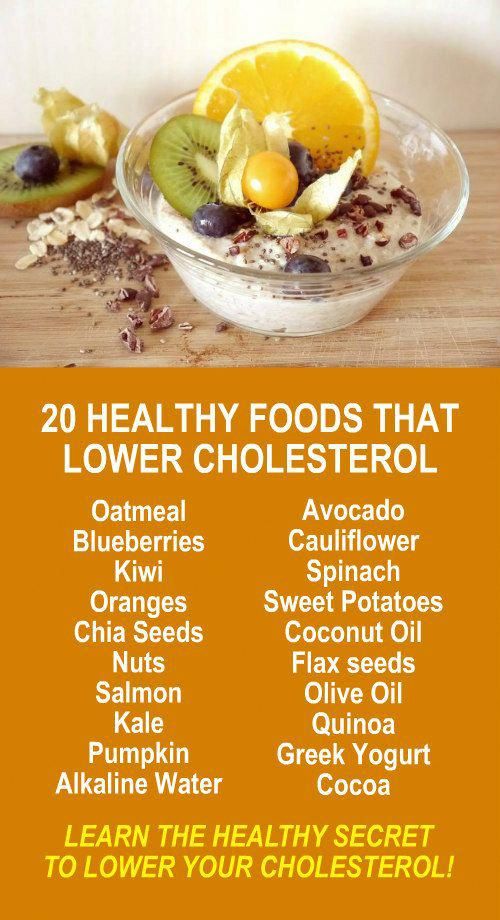Let’s begin today’s article with an interesting factoid: over 400,000 Americans die annually due to what’s being described as preventable medical errors[1].
That’s over 1000 people a day. Preventable medical errors are actually the number 3 killer in the United States, after heart disease and cancer. There are also countless cases of people undergoing unnecessary surgery due to mixed-up biopsy reports and what not.
The point being, once you’re in the hands of the “medical establishment”, also known as the medical-mafia, your chances of recovery are, let’s say pretty grim, especially if we’re talking about chronic disease. Some even say that our failing medical system is broken by design, as the name of the game is treating disease, not curing it (there’s no money in curing cancer, check that out), but that’s another story for another day.
Today’s article will provide you with a number of healthcare tips for a better life, because prevention is better than treatment, or at least that’s what “they” say.
To begin with the basics
There’s an old saying about “let thy food be thy medicine, and thy medicine be thy food”.
I think it was Hippocrates who said that, but my memory is hazy right now. Some simpler folks claim that you are what you eat. To make a long story short, try to pay attention to what you consume on a daily basis, and I am not talking exclusively about food. But speaking of food, try to always buy fresh produce or frozen products, and avoid processed foods at all costs. Canned food is particularly dangerous, as it contains BPA (most if not all cans have a plastic lining), among other nasty chemicals which are put there by design to enhance the food’s shelve life.
Generally speaking, eat what your ancestors used to eat 200 years ago, i.e. fresh unprocessed foods, preferably “organic”, though some say the “organic industry” is some sort of a scam in itself (do some research on Whole Foods for example). The best place to buy proper food is farmer’s markets by the way. Eat locally produced food, not CAFO[2] stuff. Besides eating natural whole foods (pun intended), consider supplementing your diet with omega-6 and omega-3 fatty acids. What is that, you asked? In laymen’s terms, eat organic plain yogurt, cottage cheese and fatty fish like herring and sardines.
It’s worth mentioning that having healthy gut bacteria is essential for your overall health (prevents obesity, inflammation etc.), so try to eat fermented foods as often as you can. By fermented foods, I am talking about miso soup, sauerkraut or unsweetened pickles.
Moreover, try to avoid pre-packaged salads and dressings, even if they sound “healthy”, as they most probably contain MSG, canola oil and soybean oil, all of which are crazy unhealthy. Nuts contain massive amounts of minerals and vitamins, and the best choices are almonds, cashews and walnuts.
Speaking of lifestyle choices
pay extra attention to what you put on your skin, as the cosmetics industry is mostly unregulated and the myriad of chemical substances in your deodorant, make-up, lipstick, body lotion, sunning tan or whatever you use on a daily basis are quickly absorbed by your skin and they enter your system. Think along the lines of “would I eat this body lotion”? If the answer is definitely not, you shouldn’t use it on your skin either, and I am being dead-serious here.
Be skeptical about so-called “health foods”, i.e. cooked flax or canola oil are pretty far from being good for you. It may blow your mind, but regular sodas are actually healthier than diet drinks, due to artificial sweeteners general toxicity for the human body. And don’t succumb to the cult of veganism, just read my previous article on the matter.
Try to make a habit from reading ingredient labels when you’re shopping for food, as to avoid artificial additives. That’s not an easy job, but the general rule of thumb is that if you don’t understand or pronounce a particular ingredient, you should avoid buying it. As a fun factoid, thiamine mononitrate, thiamine, niacin, cyanocobalamin, ferrous oxide, and riboflavin are actually synthetic vitamins, and they’re more or less acceptable. Do your own research on the rest; there are smartphone apps for that by the way (for decoding food ingredients). Keep in mind that one of the worst diets is a low-fat diet. Americans were way healthier when they ate lard and butter on a daily basis. If you’re having health issues, try to ditch pasta, bread and cereal. Eat fruits and brown-rice for carbs.
Generally speaking, you cannot trust big companies with your health, i.e. with providing you proper halal food; the name of the game is profit margins if we’re talking Big Agra, as they don’t give a rat’s ass on the “greater good” of society; that’s why you should try to grow and cook your own food, or buy local produce from farmers markets etc. Finally, avoid drinking unfiltered tap water (investing in a high quality water filter would be a great idea) and also avoid (like the plague) all commercial antiperspirants and deodorants, as they are all packed to the brim with carcinogens, even the ones promoted to be “safe” (as in aluminum free) and natural. As I already told you, this industry is virtually unregulated and very dishonest.
Life-style choices aside, let’s dig deeper…
If you’re a female reader with osteoporosis, you should learn that loss of bone mass is due to a shortage of estrogen, not a shortage of calcium, i.e. you don’t need calcium supplementation/ calcium pills, but estrogen replacement. For example, you should drink red wine on a daily basis, or take resveratrol (an estrogen mimicker) supplements (red wine pills). Or both, since red wine is pretty awesome, just don’t abuse it. A glass a day keeps the doctor away, or so I’ve heard.
Cholesterol and fat have a bad reputation (I don’t necessarily agree with the medical dogma, but that’s another story) yet statins prescribed for lowering your cholesterol levels are silent killers. If you want to lower your cholesterol levels in a way that doesn’t make things worse for your health, try to change your diet and take apple pectin and Vitamin C supplements (at least 2 grams of Vitamin C/day, the liposomal kind is the best).
One of the most overlooked bad habits with regard to one’s health is chronic lack of sleep. Not getting sufficient sleep severely impairs your immune system[3] and plays tricks with short term memory[4]. And speaking of lack of sleep, stress[5] is maybe the greatest threat to your health. Just to give you one example, divorce-related stress[6] is closely linked with increased chances of a severe heart attack.
Stressed people tend to smoke cigarettes, or they used to back in the day, but smoking tobacco takes literally years of your life compared to non-smokers. Ten years[7], to be more precise. So, yeah, stop smoking now. And don’t abuse any other “controlled substance”, including alcohol and opioids.
Cancer is one of the biggest killers nowadays, but chemotherapy is not the answer. Do you know how effective chemo is? Approximately 2 percent[8], and I am not kidding. This is from a peer reviewed study on chemotherapy efficiency on US and Australian cancer patients:
Results: The overall contribution of curative and adjuvant cytotoxic chemotherapy to 5-year survival in adults was estimated to be 2.3% in Australia and 2.1% in the USA.
Conclusion
As the 5-year relative survival rate for cancer in Australia is now over 60%, it is clear that cytotoxic chemotherapy only makes a minor contribution to cancer survival. To justify the continued funding and availability of drugs used in cytotoxic chemotherapy, a rigorous evaluation of the cost-effectiveness and impact on quality of life is urgently required.
I hope the article helped. If you have questions or comments, don’t hesitate to use the dedicated section below. Stay safe, stay healthy and watch your diet.
Resources
[1] https://journals.lww.com/journalpatientsafety/Fulltext/2013/09000/A_New,_Evidence_based_Estimate_of_Patient_Harms.2.aspx
[2] https://en.wikipedia.org/wiki/Concentrated_Animal_Feeding_Operation
[3] https://www.ncbi.nlm.nih.gov/pubmed/25061767
[4] https://www.ncbi.nlm.nih.gov/pubmed/30346599
[5] https://aeon.co/essays/how-stress-works-in-the-human-body-to-make-or-break-us
[6] https://www.ncbi.nlm.nih.gov/pubmed/25872508
[7] https://www.cdc.gov/tobacco/data_statistics/fact_sheets/health_effects/tobacco_related_mortality/index.htm
[8] https://www.ncbi.nlm.nih.gov/pubmed/15630849
























































































A very well written artical. We have been raising our own food for many years and buy fresh local food as much as possible. Fermented foods are also in our diet. We are in our late 60s and healthy.
Everything in the artical seems correct acording to our experence but it needs to become a lifestyle whether on the grid or off. It is a no brainer that food and health are closely related.
Taking pills and having operations so you can eat however you want makes no sense. We buy gelatin in bulk and make “jello” useing pure black berry or cherry juce. We eat 90% dark chocolate pieces and almonds for healthy sweets.
Find what works for you and stick to it. Articles like this one are worth more than moat of what is in print. Keep writing. There is a world in need of what you have to say.